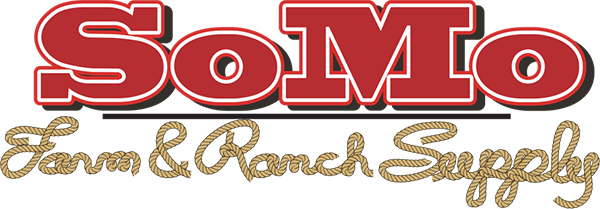Dehydration in cattle can be a serious issue, particularly during the hot summer months. Dehydration can occur when there is not enough water in a cow’s body to support its normal bodily functions, resulting in potential health problems.
As a farmer or rancher, it’s important to understand the causes of dehydration, the signs to watch for, and how to prevent it from occurring in the first place. SoMo Farm and Ranch discusses how to prevent dehydration in beef cattle during the summer months, ensuring the health and well-being of your herd.
Causes of Dehydration in Cattle
Dehydration in beef cattle can be caused by a number of factors, including environmental conditions, disease, and poor management practices.
During the mid-summer months, when temperatures are high and humidity is low, cattle have an increased risk of dehydration. Definitely watch your cattle when transporting them long distances because they probably won’t have access to water, and they’ll be stressed.
Diseases such as diarrhea can also lead to dehydration in cattle. Poor feed management practices might lead to inadequate use of a cow’s natural hydration levels. Knowing the signs of dehydration can help cattle farmers and ranchers prevent this problem from happening.
Signs of Dehydration
Dehydration is a serious condition that can lead to numerous health problems in cattle.
Here are some of the most common signs of dehydration in beef cattle:
- Sunken eyes. One of the most obvious signs of dehydration in cattle is sunken eyes. If you notice this is your cattle, you need to act fast.
- Dry mouth. Dehydrated cattle often have dry and sticky mouths, which can lead to difficulty eating and drinking.
- Lack of urination. Cattle that don’t urinate very much when dehydrated because they are trying to keep the hydration in their own bodies. Keep an eye on this, too.
- Lethargy. Dehydration can also lead to lethargy and lack of energy. If your cattle seem to be more tired than usual or spend a lot of time lying down, it could be a sign of dehydration.
- Rapid breathing. Another common sign of dehydration is rapid breathing. Cattle breathe rapidly in an attempt to cool themselves down, much like dogs pant.
Keep a close eye on your cattle during the hot summer months, and be on the lookout for any signs of dehydration. If you notice any of these signs, take immediate action to prevent further dehydration and sickness and keep your cattle healthy and hydrated.
Prevent Dehydration in Cattle
Good news! Preventing dehydration in beef cattle during the summer is possible. But it does require some proactive management on your part.
Here are some tips to keep your cattle hydrated and healthy:
1. Provide adequate water.
The most important step in preventing dehydration in cattle is to provide a consistent source of clean, fresh water at all times. Cattle need at least 1 gallon of water per 100 pounds of body weight each day. But in hot weather, they may need even more. Ensure that water sources are clean and accessible, and consider providing additional water sources to avoid overcrowding at water sources.
2. Offer high-quality forage.
Cattle that have access to high-quality forage have better digestive health, which helps prevent dehydration. Provide ample grazing areas, or supplement grazing with high-quality hay or other forage.
3. Provide shade.
Cattle need relief from the heat during the hottest parts of the day, so make sure they have access to shade. Trees, shelters, or even a simple tarp can provide some respite from the sun in the late afternoon.
4. Adjust the feeding schedule.
Feed cattle early in the morning or late in the evening to avoid the hottest parts of the day. This can help reduce stress and prevent dehydration.
5. Monitor cattle.
Keep a close eye on your cattle and look for any signs of dehydration, such as dry skin or mouth, lethargy, or sunken eyes. Catching dehydration early is crucial, as it can quickly lead to more serious health problems.
6. Use a quality waterer.
Using a good cattle watering system, like those available at SoMo Farm and Ranch, can ensure that your cattle have continuous access to fresh, clean water.
Cattle Waterers at SoMo Farm and Ranch
SoMo Farm & Ranch Supply carries cattle watering systems as well as everything else you need to keep your cattle healthy and happy. Visit our store in Springfield, MO, contact us, or call (417) 865-0312.
